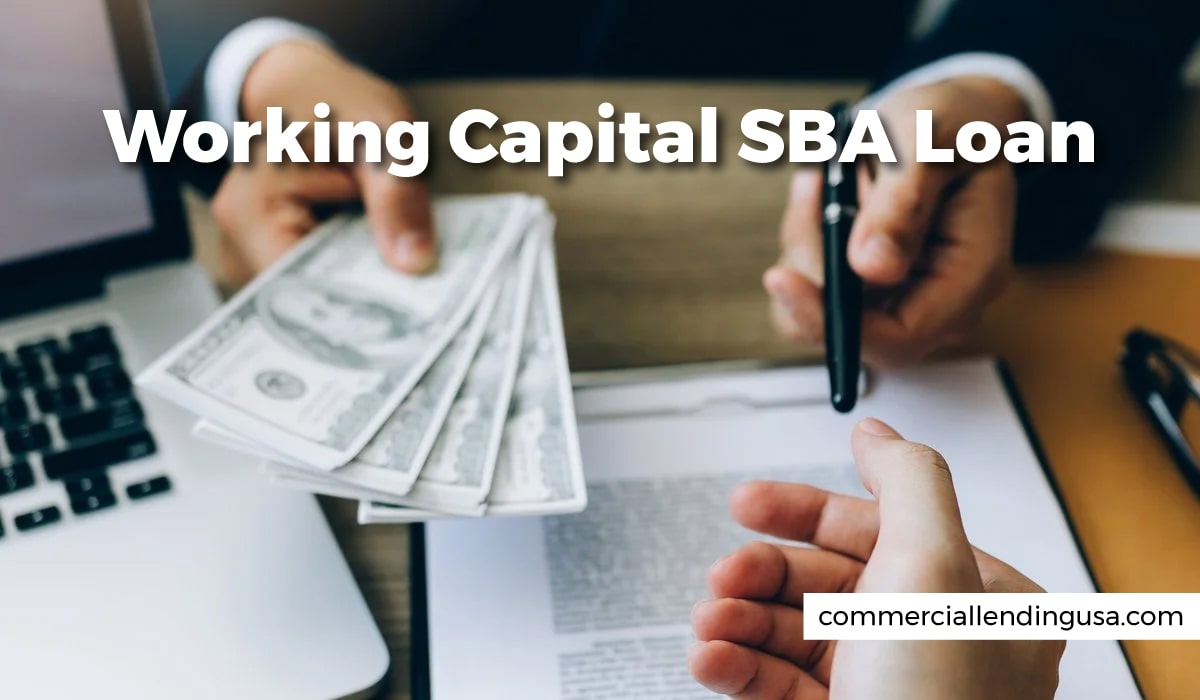
Working Capital SBA Loan Definitive Guide, Can Help Your Business Grow
Working capital SBA loan is a necessary part of small business. When something needs to be bought, prepared, or rented, working capital is needed to help finance that purchase, preparation, or rental.
The working capital loan can be found in many Financing Companies. A working capital SBA loan is a type of loan that is designed to help businesses with working capital. With an SBA loan, businesses can get money rapidly to cover any potential financial shortfall.
With a dynamic economy, it is important to have working capital in case of emergencies. A working capital SBA loan can be a valuable tool for businesses in this situation. When used correctly, an SBA loan can provide businesses with the necessary funds to cover unexpected costs and keep their business afloat.
Understanding Working Capital SBA Loans
If you're searching for business working capital loans, you've got several options. The most popular are Small Business Administration (SBA) loans. Before choosing loans that fit your working capital needs, assess the eligibility criteria of the most effective options, so your company has a strong chance of approval.
Small Business Administration (SBA) Loans
-loans_1662026286.jpg)
There is no doubt that securing a loan from the Small Business Administration (SBA) is an important step in starting a small business. Without the help of SBA loans, businesses could not survive and would likely be forced to close their doors. With such a vital resource at your disposal, it's important to understand what types of loans are available and how you can use them to help your business grow.
SBA working capital loans are offered by banks and credit unions and partially backed by the SBA. The purpose of these loans is to aid small business owners in getting their operations off the ground, maintaining momentum, and expanding their businesses. So they're great for startups and small businesses.
The SBA loans program provides funds up to $50,000 for small businesses seeking to expand or renovate their facilities. You can use this money to pay for materials, labor, or both. The interest rate on these loans ranges from 3% to 8%.
The versatility of SBA loans is an advantage. Requirements, interest rates, and maximum loan amounts vary depending on the loan type. It could benefit your small business to learn about the numerous SBA funding choices available.
SBA 7(a) loan
A loan is a financial investment that can provide the borrower with an immediate financial return on investment. An SBA 7(a) loan is a type of loan available to companies with a positive net worth and in good standing with the SBA. The loans are provided at low-interest rates and provide businesses with the opportunity to invest in their growth.
It's a short-term loan for working capital, and the maximum amount you may borrow is $5 million. In addition, you can use the SBA 7a loan to purchase property or refinance current corporate debt. One of the most competitive working capital loans is the SBA 7 loan, with interest rates ranging from 2.25% to 8%. A loan with up to ten years of repayment is a smart option for businesses that can't afford to have their cash flow interrupted.
To qualify for an SBA 7(a) loan, a startup must also have:
Evidence of experience: New businesses must demonstrate their finance to investors that they have experienced founding and executive management in particular target industries or business management.
Increased down payments: The standard down payment or equity contribution demanded by SBA lenders ranges from 20% to 30% of the project's overall expenditure, or approximately $25 to $30 for every $100 in financing requested.
Outstanding credit: We have found securing SBA startup funding challenging for all but the most creditworthy borrowers (those with a score of 700 or higher, a substantial liquid net worth, and property with adequate equity).
Guidelines for Requesting a Small Business Administration7(a) Loan
Before applying for an SBA loan, it is crucial to consider the applications that will keep you qualified for the loan and confident in completing the loan process. It may take up to 90 days for an SBA loan to be approved and funded, but loans from SBA preferred lenders have a better chance of being processed quickly.
SBA Micro-loan
Generally, this loan is to provide temporary operating capital. And it has a maximum term of 1 year and a maximum amount of $50 million. You can utilize the funds as capital investment or buy new machinery and equipment.
The interest rate range for SBA microloans is 6% to 9%. Microloans from the Small Business Administration (SBA) have more lenient requirements than SBA 7 loans, although an individual credit rating of 640 or above is still required to apply. Along with a personal guarantee, some lenders also demand collateral.
SBA CAPLine
You may use this line of credit for small businesses on an ongoing basis. Its purpose is to assist with cyclical or urgent working capital requirements. SBA CAPLine's 10-year payback terms are cash flow-friendly. Interest rates as low as 2.25 percent make it affordable. This credit line provides funding for up to $5,000,000.
How Do Working Capital Loans Work?

The term "working capital loan" refers to a loan utilized for operational purposes, such as making a purchase or carrying out a renovation. It is a short-term loan obtained to help with the project's costs. The loan is a grant to cover the difference between what the borrower has saved and what they are expected to spend on the project. The loans are usually tailored to meet the needs of small businesses and a variety of denominations.
Working Capital Loan is a type of loan a financing company or financing advisor offers. This type of loan is designed to help businesses with limited money start or grow their business. The lender will provide a low-interest rate and allow the business to make a small number of payments over time. The business must also maintain good financial records and make sure it can pay back the loan within the agreed-upon period.
There is high importance of working capital in a business. Working capital is a business's money to pay for its operational costs, such as rent, interest, and phone bills. A business needs to have enough working capital to cover its short-term and long-term liabilities. A lack of working capital can lead to the business being unable to pay its debts and ruin its company.
What factors influence the size of a working capital loan?

Working capital loans are available in various sizes to meet the needs of businesses of all sizes. Factors that influence the size of a working capital loan include company size, industry, and credit history.
Larger companies typically borrow more money than smaller companies because they have more assets to collateralize the loan, and their credit history is usually stronger. Smaller companies often borrow less money because they do not have as much collateral or credit history.
The industry also affects the size of a working capital loan. Businesses in industries with high turnover tend to need larger loans than businesses in industries with low turnover.
Businesses with good credit histories can borrow up to 80% of their working capital requirement. But, businesses with poor credit histories may need to borrow only 50% or less.
When considering a working capital loan, there are several factors, including cash flow and creditworthiness. In addition, the loan's terms - such as interest rate and repayment schedule - will also play a role in its size. Finally, companies may need to factor in their debt obligations when determining whether a working capital loan is feasible.
Is getting a working capital SBA loan a wise option for my company?

Getting a working capital SBA loan may not be a wise option for your business. While this type of loan can provide short-term financial relief, it can also have long-term consequences.
Working capital loans are often used to cover temporary shortages in cash flow.
However, you could face difficulty if your company doesn't have the resources to repay the loan quickly. This loan is especially true if you cannot obtain additional funding from other sources.
A working capital SBA loan can also lead to serious financial problems. If you cannot repay the loan on time, you will likely face penalties and interest charges. In addition, you may end up losing valuable equity in your business.
A personal loan may be better if your company's cash flow can't afford a working capital loan. Or you can choose the business credit card option. You should avoid taking out a loan if doing so will further reduce your cash flow or liquidity.
If You Need Working Capital SBA Loan, Apply Here!
Sam Haq, CEO
Commercial Lending USA
www.commerciallendingusa.com
0 Comments
Leave A Comment